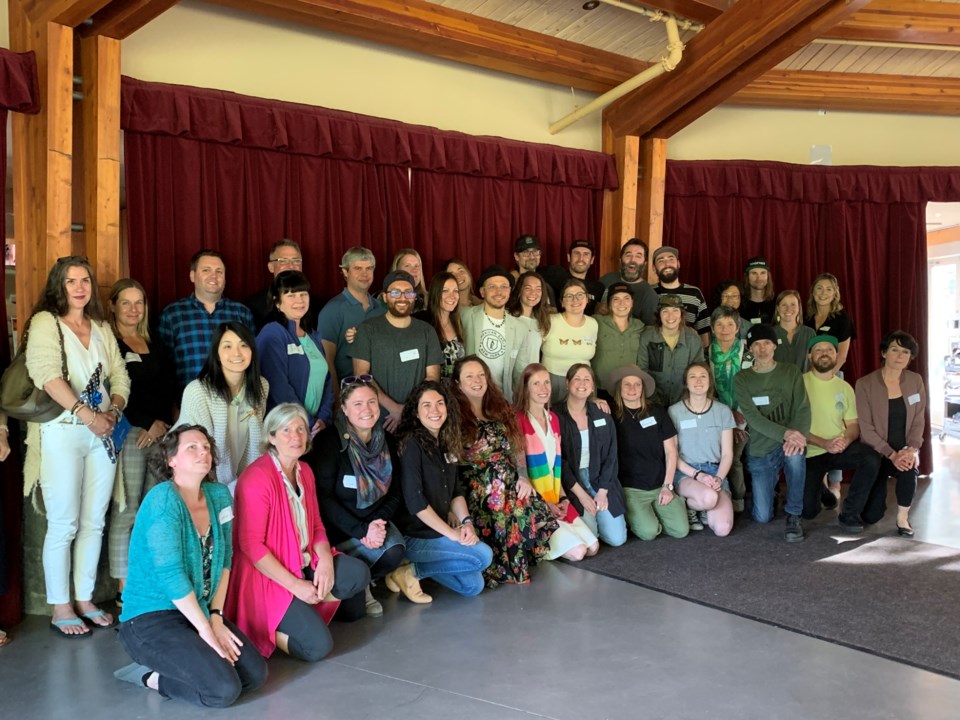While Whistler is slowly starting to rebound from the COVID-19 pandemic, its impact is still reverberating through the community. In 2021 the pandemic, combined with record inflation, led to a substantial number of residents requiring services.
This story was presented in stark statistics at the Whistler Community Service Society's (WCSS) annual general meeting held on June 22.
The WCSS is a community social service provider that runs programs like the Whistler Food Bank, Re-use-it and Re-build-it centres, lunch programs for children and more.
According to the WCSS, food bank visits hit 9,365 in 2021, up from 5,782 in 2020. Both years represent a stark contrast to 2018, when only 2,773 people used the service.
The users of the food bank also became wider encompassing. Eight hundred and forty children used the food bank in 2021, up from 50 in 2020, a 1,580-per-cent increase. The number of people accessing outreach services also increased to 6,128 from 4,922 in 2020.
“Over half of our food bank community members pay over 50 per cent of their income towards rent," said WCSS executive director Jackie Dickinson.
"Our food bank visits have gone up by 337 per cent [since 2018].”
On top of the number of people using the food bank and outreach services, Dickinson also highlighted how last summer's heat dome tested the WCSS in new and challenging ways.
“We all have our own experience, and when we knew things were really hot—for me it was when the letters on the side of our building started to fall off. That was my moment,” Dickinson said.
“This team moved into action in less than 72 hours. They walked in underground parking garages to make sure our homeless were well taken care of. They provided electrolyte drinks and water in front of the Whistler Public Library for those that were vulnerable and diabetic. Our staff made sure our reusable water bottles were front and centre and were fully hydrated, and stood in front of our stores to make sure that those that needed water and hydration got the support.”
In total, 20 groups of people used a new temporary extreme weather centre that was run in coordination with the Resort Municipality of Whistler. The centre was set up for people to escape their non-air-conditioned homes. According to a report by the BC Coroners Service, over seven days, 640 people died in the province due to excessive heat, with 90 per cent of those people living in high-density housing.
With the heat dome also came fires. Evacuation alerts and orders were issued for swaths of the Squamish-Lillooet Regional District from the Thompson Nicola Regional District border to Duffey Lake. Many of these evacuees would come west to Pemberton and Whistler.
Dickinson recounted a story of a Lytton refugee that came to Whistler looking for help after losing her home in the fire.
“About 12 months ago, a woman walked into our building a few days after the highest point of the heat alert, and what struck me was she didn't have any shoes on. She walked into our outreach services, and our outreach team started to see how they can best support her,” said Dickinson.
“She had fled Lytton, which we know quickly caught fire in a matter of minutes, and she fled her home. Our outreach services made sure she had water and hydration and that she was connected to the Red Cross and emergency social services locally.”
WCSS staff made sure the woman had clothing, "and she identified that she had grandchildren and that they needed shorts and all the necessary things because they had fled Lytton in a very quick way,” Dickinson added.
“The most curious thing I wanted to know was why she didn't have shoes on. She shared with us that when that community went up in flames, she started driving around, putting every single one of her grandchildren in her car, and she left her shoes at the door. Her priority was to ensure that every small child and her family fled that community.”
When it comes to the WCSS' financial position, donations were down in the first quarter of 2022, but the organization's past support has allowed it to build up a reserve.
“Fortunately, the community was extremely generous again this past year, as were the government and other charities. We had strong support for all these programs,” said WCSS vice chair Steve Aikens.
“We definitely have a job for us to build the revenue to support what we do, but we have the reserves to continue supporting the programs we do for the next six months."
Find more info or make a donation at mywcss.org.




